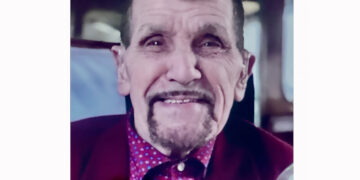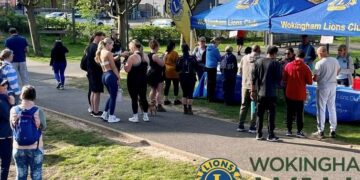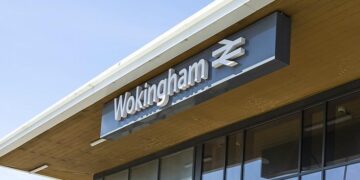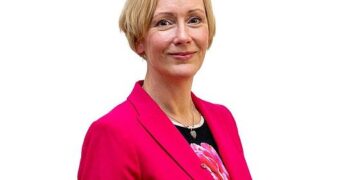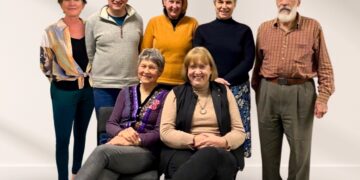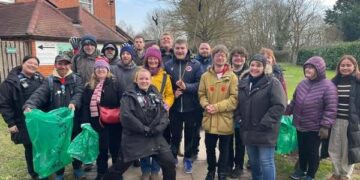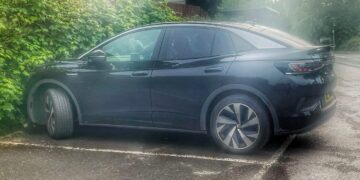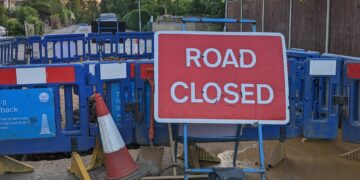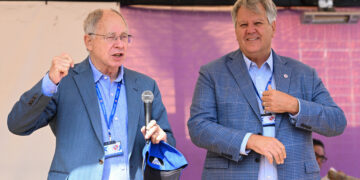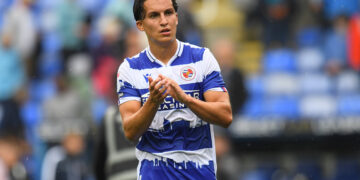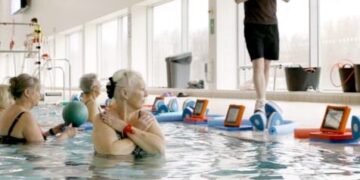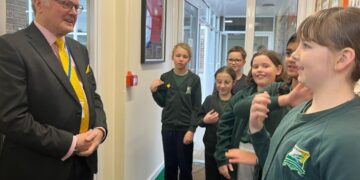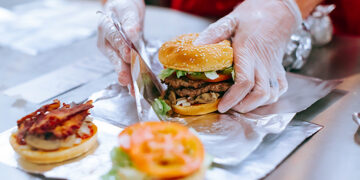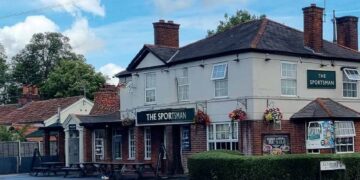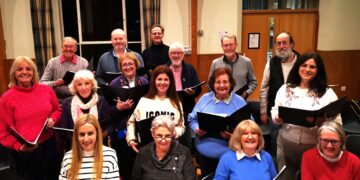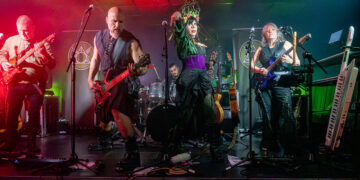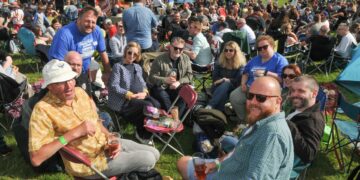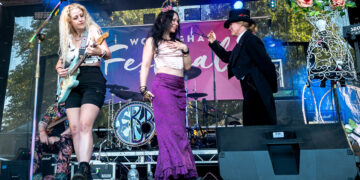FOUNDED in 2015, the Women’s Equality Party has a branch in Reading and Wokingham headed up by Louise Timlin. While still a relatively new political entity, it is growing and recently held an event that attracted more than 100 people.
“It was founded by Catherine Mayer and Sandi Toksvig, who felt quite frustrated that women’s voices were not being heard and represented in national politics,” Louise says. “Almost on the spur of the moment, they decided to form a national political party. I think their first manifesto was written around the kitchen table with enthusiastic volunteers.”
Louise says she joined early on, saying she felt so passionate about the WEP’s aims she had to be part of it. Since then, she has organised events to raise awareness, and has stood for election in Evendons ward in Wokingham borough. She is the party’s only candidate locally this year.
What does the party stand for? In a nutshell, equality: equal pay and opportunity, equal representation in politics and industry, shared parenting, equal education, equal treatment in the media are all things Louise mentions. And the party also wants action on violence against women and girls.
“In every one of those key policy areas, we still have gaps that are not being addressed at the national or local level by any party,” she says.
The WEP is small, and funded by donations – no billionaire donors Louise explains. “I think for the size of party we have, we make a real influence, we’re able to bring issues forward, and we work collaboratively.
“We’re not about adversarial party politics. We have policy solutions that are well researched.”
As an example, she cites childcare as an issue that had been “ignored and ignored and ignored”, but no longer: “Finally, we have the Conservative Party making really big announcements about how they’re going to drastically change childcare provision. Labour are still working it out and we’re waiting for details for their announcement. This is because of the campaigning that organisations like the Women’s Equality Party have made – we are making a difference.”
Locally, Louise says the main focus is currently on Wokingham, and says that they have also been trying to work collaboratively with the council on a number of issues.
“A really key example is domestic abuse services in Wokingham,” she says. “We had a situation where the previous, Conservative, administration changed the service provide for its domestic abuse services and the new contractor was being paid and contracted to provide a women’s refuge but were unable to – it’s not something you can just immediately set up from scratch.
“We had the old provider continuing to provide a refuge through charitable funds. This went on for over a year, and we were unable to get the old administration to really collaborate and listen to find a solution.
“Prior to the last local elections, we sat down with the Lib Dem leader and members of the party, talked through what had happened and why, and what some of the solutions could be. We also talked about how to prevent it happening in the future.
“They were more than happy to sit down and listen and apply those learnings going forward. That’s the kind of collaboration I think we can bring to politics locally.”
Another example she cites is the White Ribbon accreditation. This is a campaign that asks men to stop violence and abuse against women and girls.
“It became a party-political issue in Wokingham, which was ridiculous. It really didn’t need to be,” Louise says. “We wrote to every single councillor to ask them to take the White Ribbon pledge not to use, excuse or remain silent on the issue. The Labour and Lib Dem councillors were more than happy to do so, but the Conservatives refused. There’s absolutely no reason for this. It’s just party-political nonsense.
“We supported a motion, we held a public demonstration, we did a petition. When the Lib Dems took control of the council, they agreed to seek the accreditation. Another good example of working collaboratively.”
As a party with no councillors and one candidate, it’s clear they have to work differently to make their voice heard. How are they engaging with the public?
“We’ve had stalls at various fairs, and we want to talk to people to find out what are the important things that matter to them locally,” Louise says. “We have also had petitions.
“People are really interested in what we do, why we do it, and talking about the issues. In general, we’ve had a really positive response.”
What about the people who want to know why there isn’t a men’s equality party and International Men’s Day?
“Well,” Louise says, “Men’s Day is November 19. There is nothing to stop people organising events on International Men’s Day and I’d be really happy to collaborate on that. I think gender stereotypes and gender inequality really impact men negatively. That’s one of the conversations we have.
“The really obvious example is men’s mental health and the suicide rate for men. It is much higher than it is for women. You’ve got to think how some of those stereotypes are playing into that.”
She adds that younger generations are more aware of the importance of equal parenting and workplace flexibility so men can spend more time with their families.
“We’ve got to think about how we can organise society differently to make that happen for everybody’s benefit,” Louise says.
This is the third time she has stood as the only local candidate for the party, and understandably the campaign trail can be a lonely path.
“It’s really hard work, particularly when you come from a small party with a smaller number of volunteers, and less money,” she explains. “It’s mostly women with paid jobs and unpaid jobs that we try and do on top of this.
“There’s a big expectation from residents, and I completely understand this, that they want you to go round and knock on doors. It takes an awful lot of time, but we’re trying to do as much as we can, because we want to engage with people as much as possible.”
She also says the aggressive nature of politics can put people off standing.
“One of the reasons I’m standing is to say politics doesn’t have to be this way, it can be done in a collaborative way that’s for the benefit of everybody. This means it will be a more attractive place for a more diverse group of people and the more diverse the council is, the more different people’s voices get represented, and we can really represent everybody in our community.”
On council tax increases, Louise says that councils are being squeezed for funding, and this has an impact on women as they are more likely to use public services.
“When public spending gets cut, it’s women that bear the brunt of that disproportionately,” she says. It’s really important to take a really deep look at proposals being made.
“Go back a couple of years, and a proposal was brought forward looking at council tax relief for single parents – 90% of them are women. The proposal was to take maintenance payments into account when calculating the parents’ income. Most councils don’t do this, because these payments can be unreliable, and they are also for the benefit of children.
“The proposal was passed, there was a lot of public opposition and it was overturned.
“I think it’s important to look at these policies from everybody’s perspective. You’ve got to work out who has been impacted and how, and make sure you put in mitigating policies that are really going to support vulnerable residents.
“While there might be a need to raise more finances, we’ve got to make sure that the people who are going to be impacted are supported.”
So why should people get behind the Women’s Equality Party, not just on May 4, but going forward?
“We are small, but we have influence on the national and local level,” Louise says adding that she wants voters to think about the issues that matter to them, rather than voting along party lines.
“Take a bit of time, think about what the party’s stance is on these issues, what their track record is, how hard they’re going to work. Take a little bit of time and see what the candidates have been doing, how well are they embedded in the community? How do they understand the issues?
“This is about where we live, we’ve got to make sure we have the best people representing us and they’re really standing up for us.”
She adds: “The Women’s Equality Party makes sure that issues that matter to women are raised, that they’re heard and they’re active.
“I really think my track record speaks for itself. I’ve been really engaged in the community I worked at the Community Hub during covid, I was a vaccinator, I used to run groups for the NCT, and was a school governor.
“We want to show that politics can be done differently. And we want to show what can be done with a different style of politics and with collaboration. I really think that we can make a difference.”


